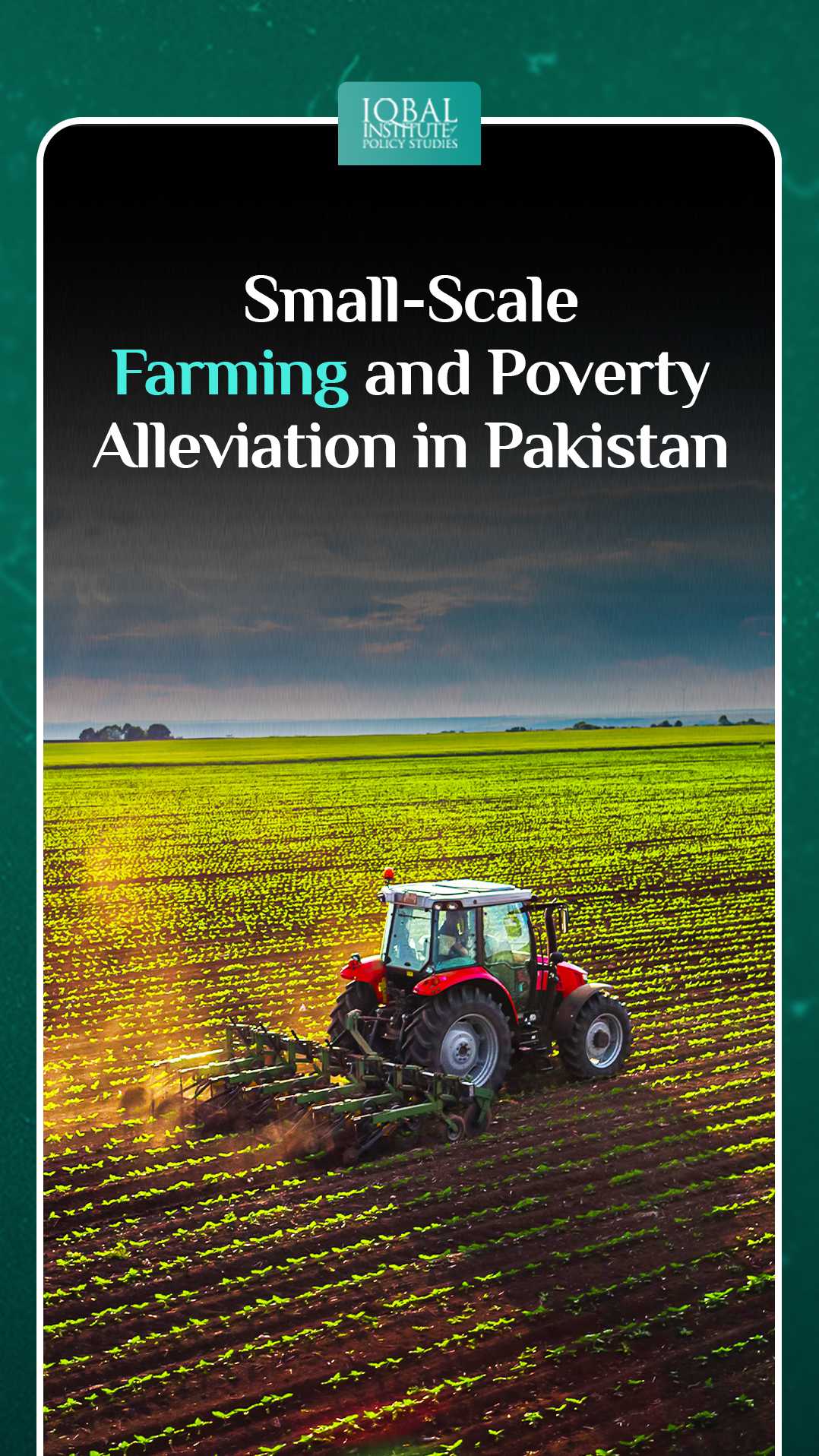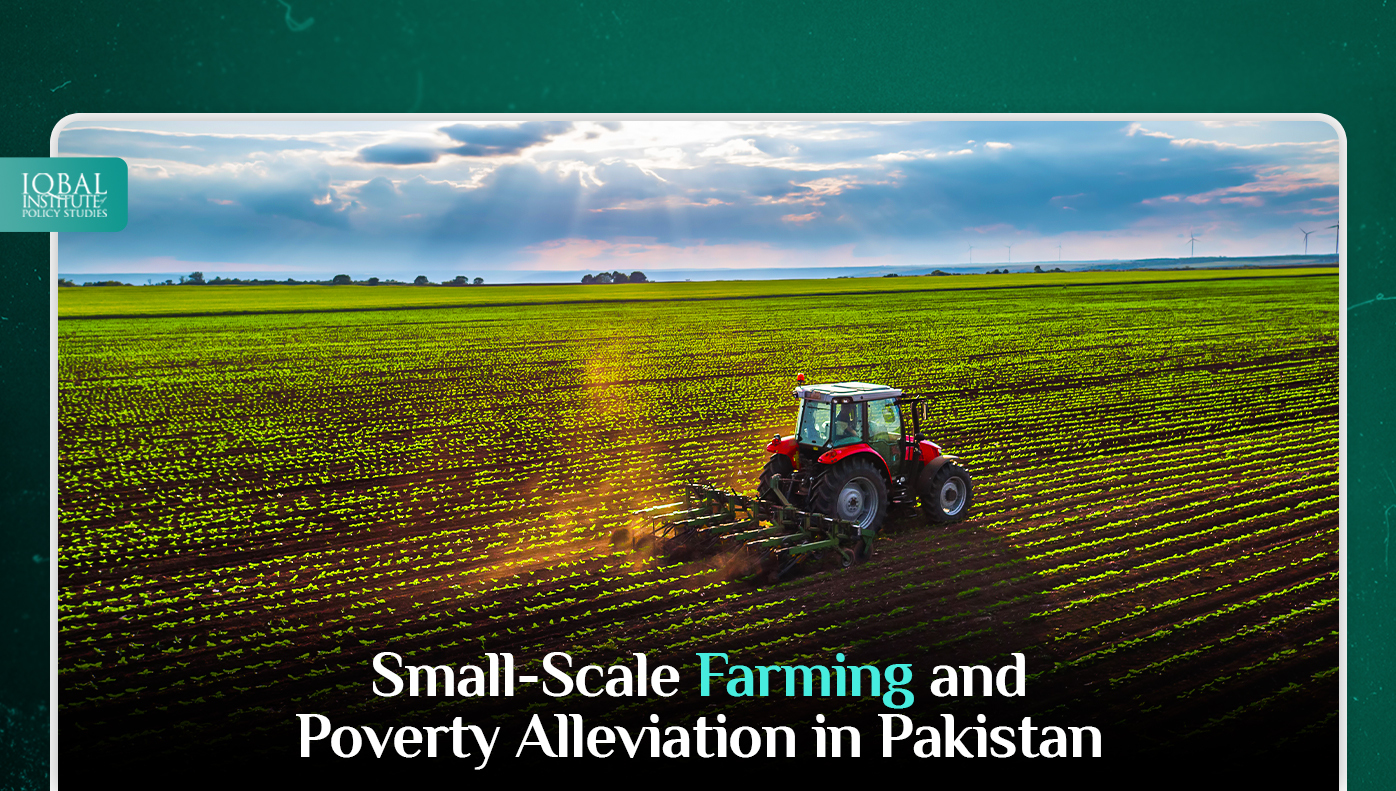In the heartland of Pakistan, where lush green fields stretch as far as the eye can see, a significant transformation is taking place. Small-scale farming, once overlooked in favor of large commercial farms, is emerging as a powerful force in poverty alleviation across the country. In this blog, we will explore the multifaceted relationship between small-scale farming and poverty reduction in Pakistan, shedding light on the vital role these humble farms play in transforming lives and communities.
The Landscape of Small-Scale Farming in Pakistan
The landscape of small-scale farming in Pakistan is a rich tapestry that weaves together the livelihoods of millions. Across the country’s vast expanse, small-scale farms dot the rural panorama, ranging from a few acres to a couple of hectares in size. These farms are the lifeblood of rural communities, providing sustenance, employment, and economic stability to countless families.
In the heart of Punjab’s fertile plains, rice and wheat sway in the breeze while Sindh’s fields burst with the golden hues of sugarcane. The northern regions, with their terraced fields, nurture crops like maize and barley, while the southwestern province of Balochistan cultivates fruits, vegetables, and dates.
Small-scale farmers in Pakistan are not confined to a single type of agriculture. They engage in diverse activities, balancing crop cultivation, livestock rearing, and horticulture. This diversity not only ensures a varied diet but also contributes to the country’s agricultural output. Livestock, including cattle, buffalo, and goats, are commonly raised alongside crop farming, providing additional sources of income through milk, meat, and other products.
Moreover, the horticulture sector is gaining momentum, with small-scale farmers venturing into growing fruits and vegetables. These fresh produce items find their way to local markets and urban centers, further enriching the rural economy.
In essence, the landscape of small-scale farming in Pakistan is a dynamic, multifaceted mosaic, fostering resilience, nourishing families, and being the catalyst for poverty alleviation in rural communities.
Small-Scale Farming: A Catalyst for Poverty Alleviation
Employment Generation
Small-scale farming is a reliable source of employment in rural Pakistan. It provides opportunities for not only the farm owners but also their family members and additional laborers during planting and harvesting seasons. This increased employment directly contributes to higher income levels.
Income Diversification
Farming families often engage in multiple income-generating activities, such as cottage industries and agribusiness ventures. These diversifications reduce their dependency on a single income source and improve financial resilience.
Empowering Women
Small-scale farming engages women in productive roles. Women actively participate in crop cultivation, livestock care, and cottage industries, enhancing their economic empowerment and contributing to household income.
Food Security
Small-scale farms play a crucial role in ensuring food security for rural and urban populations. They produce a significant portion of the country’s food supply, making nutritious food accessible to all income groups.
Community Development
The prosperity of small-scale farms often extends to the broader community. Increased income leads to improved access to education, healthcare, and infrastructure, fostering overall development.
Challenges
Limited Access to Resources
Small-scale farmers often lack access to modern farming techniques, quality seeds, and advanced agricultural machinery. This limitation hampers their productivity and yield potential.
Access to Credit
Many small-scale farmers face difficulties in obtaining affordable credit. Without financial support, they struggle to invest in their farms, adopt new technologies, or expand their agricultural enterprises.
Market Access
Small-scale farmers often confront challenges related to market access and pricing. Middlemen may exploit them, leading to lower returns for their produce. Additionally, inadequate transportation and storage facilities can result in post-harvest losses.
Climate Vulnerability
Climate change poses a significant threat to small-scale farmers. Erratic weather patterns, prolonged droughts, and unexpected floods can devastate crops and livestock, jeopardizing their income and food security.
Land Fragmentation
The division of land among family members over generations has led to land fragmentation. Smaller land holdings may not be economically viable for modern farming practices, limiting the potential for mechanization and scaling up production.
The Way Forward
Agricultural Training and Extension Services
Providing training and education to small-scale farmers on modern farming techniques, sustainable practices, and the use of technology can enhance their productivity and reduce post-harvest losses.
Access to Credit
Financial institutions and microfinance organizations can play a crucial role in providing small-scale farmers with affordable credit. Tailored financial products can help them invest in farm improvements and business expansion.
Market Linkages
Strengthening market linkages and value chains is essential to ensure fair prices and reduce the influence of middlemen. The development of farmer cooperatives and the establishment of local collection centers can help farmers access broader markets.
Climate-Resilient Agriculture
Promoting climate-resilient farming practices, such as drought-resistant crop varieties and water-efficient irrigation techniques, can help small-scale farmers adapt to changing climate conditions.
Land Consolidation
Encouraging land consolidation through policies and incentives can lead to larger, more productive land holdings. This consolidation can enable mechanization and improve overall farm efficiency.
Government Support
The government can provide subsidies for agricultural inputs, invest in rural infrastructure, and develop insurance schemes to protect farmers from crop losses due to climate-related events.
Research and Innovation
Investment in agricultural research and innovation can lead to the development of crop varieties that are more productive and resistant to pests and diseases, benefiting small-scale farmers.
Conclusion
Small-scale farming is more than just a source of sustenance; it is a powerful engine for poverty alleviation in Pakistan. These modest farms, often operated by resourceful and hardworking families, contribute significantly to food security, employment generation, and community development. By addressing the challenges they face and providing the necessary support and resources, Pakistan can further unlock the potential of small-scale farming in its mission to reduce poverty and promote sustainable rural development. These farms are not just cultivating crops; they are sowing the seeds of prosperity.
This article is written by Radma Nouman. Radma is a research analyst at the Iqbal Institute of Policy Studies (IIPS).



Leave a Reply